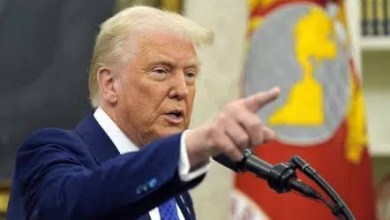Court Confirms TikTok Ban Amid National Security Concerns

the United States Supreme Court has upheld a law banning the popular social media platform TikTok. The ruling comes after months of debate surrounding the app’s potential risks to national security and data privacy. Lawmakers and intelligence officials have expressed concerns over the app’s ownership by ByteDance, a Chinese company, and its possible connections to the Chinese government.
The decision stems from legislation passed by Congress that sought to restrict platforms deemed a threat to national interests. Critics of TikTok argue that the app collects extensive user data, which could be accessed by foreign entities. Although TikTok has repeatedly denied these allegations, the bipartisan support for the ban reflects growing unease about foreign influence in digital spaces.
The Supreme Court’s ruling solidifies the federal government’s authority to regulate digital platforms on national security grounds. Justice Samuel Alito, writing for the majority, stated, “The United States has a compelling interest in safeguarding its citizens’ personal data and maintaining the integrity of its information ecosystem.” The decision, however, was not unanimous, with three justices dissenting, citing concerns over free speech and the potential overreach of government power.
TikTok’s parent company, ByteDance, expressed disappointment in the decision, emphasizing the platform’s efforts to ensure data security and transparency. In a statement, the company said, “We remain committed to providing a safe, creative space for our millions of users in the U.S. and worldwide. We will explore all possible avenues to address this ruling.”
The ban has drawn mixed reactions from the public and stakeholders. Supporters of the decision view it as a necessary step to protect national interests, while critics argue it sets a troubling precedent for censorship and limits on technological innovation. Digital rights organizations have also raised concerns about the broader implications for internet freedom.
As the implementation of the ban begins, experts predict significant impacts on TikTok’s U.S.-based content creators and businesses. Many creators have built livelihoods on the platform and are now scrambling to find alternative spaces to engage with their audiences. Meanwhile, lawmakers are considering similar actions against other foreign-owned apps and platforms, signaling a potential shift in how the U.S. approaches digital security.
This ruling marks a pivotal moment in the ongoing tension between national security and digital freedoms, leaving both policymakers and the public to grapple with its far-reaching implications.












